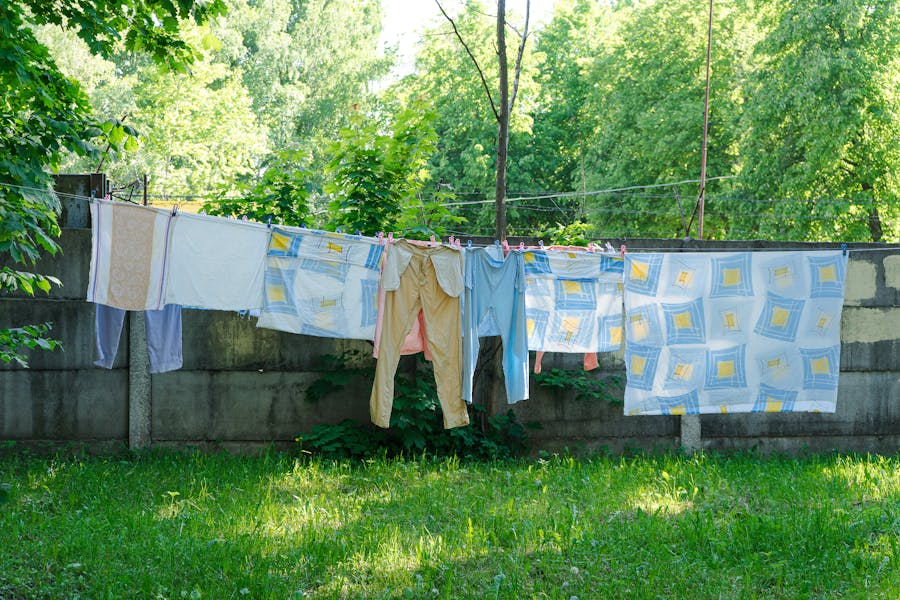
In the dynamic landscape of consumer goods, the origin of products holds increasing significance for many individuals. Amidst this trend, the realm of laundry sheets, designed to simplify the chore of laundry, has not escaped scrutiny. With a surge in interest towards supporting domestically manufactured goods, the question of where laundry sheets are made in the USA has become paramount. This article embarks on a journey to unravel this query, shedding light on the importance of domestic manufacturing, the challenges in identifying American-made options, and strategies for discerning consumers.
What laundry sheets are made in the USA?
Several laundry sheet brands proudly manufacture their products in the USA. Some well-known options include Dropps, Grab Green, and Molly’s Suds. These brands prioritize domestic manufacturing, offering consumers a range of eco-friendly and effective laundry sheet options while supporting local economies. Always check product labels or the brand’s website to confirm American-made status.
Growing Consumer Interest In Domestically Manufactured Products,
Growing consumer interest in domestically manufactured products stems from several critical factors, reflecting shifts in consumer preferences and broader socio-economic trends:
Quality Assurance: Many consumers perceive domestically manufactured goods as being of higher quality due to stricter regulations, quality control measures, and adherence to labor standards enforced in the country of production. This perception often translates into increased trust in the product’s performance and durability.
Support for Local Economies: Purchasing domestically manufactured products stimulates local economies by creating jobs, supporting small businesses, and contributing to the region’s overall economic growth. Consumers are increasingly aware of the positive impact of their buying decisions on their communities and are thus more inclined to choose products made in their own country.
Environmental Concerns: With a growing focus on sustainability and reducing carbon footprints, consumers are becoming more conscious of the environmental impact of their purchases. Buying locally manufactured products often entails shorter supply chains, leading to reduced transportation emissions and energy consumption. Additionally, domestically produced goods are subject to stricter environmental regulations, aligning with eco-conscious consumer values.
Transparency and Ethical Practices: Domestic manufacturing is often associated with greater transparency and adherence to ethical labor practices. Consumers are more inclined to support companies that prioritize fair wages, safe working conditions, and ethical sourcing of materials, all of which are more easily monitored and regulated within their own country.
Patriotism and National Identity: For many consumers, purchasing domestically manufactured products reflects a sense of patriotism and national pride. By supporting local industries, consumers feel they are contributing to the strength and resilience of their country’s economy and preserving its industrial heritage.
Common Ingredients And Manufacturing Processes
Common Ingredients and Manufacturing Processes in Laundry Sheet Production:
- Surfactants: Surfactants are key ingredients in laundry sheets that help lift fabric dirt and stains. These substances reduce the surface tension of water, allowing it to penetrate fabrics more effectively. Common surfactants in laundry sheets include alkyl sulfates, alkyl ether sulfates, and alkylbenzene sulfonates.
- Solvents: solvents dissolve and disperse ingredients within the laundry sheet formulation. They help keep the ingredients in a stable and uniform suspension, ensuring effective distribution during the washing process. Common solvents used in laundry sheets include water, ethanol, and glycols.
- Builders: Builders are additives that enhance the cleaning efficiency of laundry sheets by softening water and preventing dirt from re-depositioning onto fabrics. They bind to minerals in the water, preventing them from interfering with the cleaning process. Common builders include sodium carbonate (washing soda) and sodium tripolyphosphate.
- Enzymes: Enzymes are biological catalysts that break down specific types of stains, such as protein-based stains (e.g., blood and sweat) or starch-based stains (e.g., food residues). Common enzymes used in laundry sheets include proteases, amylases, and lipases.
- Fragrances: Fragrances are added to laundry sheets to impart a pleasant scent to laundered fabrics. They can be derived from natural essential oils or synthetic fragrances. Fragrances are typically added in small amounts to avoid overwhelming the senses or causing allergic reactions.
- Colorants: Colorants may be added to laundry sheets to enhance their visual appeal or to differentiate between different product varieties. These colorants are carefully selected to be safe for laundry applications and to avoid staining fabrics.
Manufacturing Processes:
- Mixing and Blending: The first step in manufacturing laundry sheets involves mixing and blending the various ingredients to create a homogenous mixture. This ensures that each sheet contains the correct proportions of active ingredients and additives.
- Extrusion: The blended mixture is then extruded onto a substrate, such as a thin film or fabric sheet. This process involves forcing the mixture through a die to create thin, uniform sheets of the desired size and shape.
- Drying: The extruded sheets are dried to remove excess moisture and solidify the ingredients. Air drying or bypassing the sheets through heated drying chambers can achieve this.
- Cutting and Packaging: Once dried, the sheets are cut into individual units of the desired size and packaged for distribution. Packaging may include individual pouches or sachets, resealable containers, or bulk packaging options.
- Quality Control: Quality control measures are implemented throughout the manufacturing process to ensure that the finished laundry sheets meet specified standards for performance, safety, and consistency. This may include testing samples for ingredient purity, sheet thickness and durability, and overall product effectiveness.
Strategies For Finding American-Made Laundry Sheets
Strategies for Finding American-Made Laundry Sheets:
Check Product Labels:
Look for clear indications on the product packaging or label that the laundry sheets are made in the USA. Some brands prominently display the “Made in the USA” label or include phrases such as “Manufactured in the United States” or “Proudly Made in America” on their packaging.
Research Brand Background:
Research the brand’s website or contact the company directly to inquire about the origin of their products. Brands prioritizing domestic manufacturing often provide detailed information about their production facilities and sourcing practices. Look for brands strongly committed to American manufacturing and transparent supply chains.
Utilize Online Resources:
Take advantage of online resources and directories that specialize in identifying American-made products. Websites such as Made in USA Certified and USA Love List provide curated lists of brands and products made in the USA across various categories, including household goods like laundry sheets.
Consumer Advocacy Groups:
Seek guidance from consumer advocacy groups or organizations that promote domestic manufacturing and support for American-made products. These groups may offer recommendations, resources, and tools for identifying and purchasing domestically manufactured laundry sheets.
Read Reviews and Recommendations:
Look for reviews and recommendations from other consumers who prioritize American-made products. Online forums, social media groups, and review websites can be valuable sources of information and insights from individuals with firsthand experience with specific brands of laundry sheets.
Support Local Retailers:
Consider shopping at local retailers, specialty stores, or farmers’ markets that prioritize carrying products made in the USA. These retailers may have a selection of laundry sheets from domestic brands, making it easier to find and purchase American-made products.
Direct-to-Consumer Brands:
Explore direct-to-consumer brands that manufacture and sell their products exclusively online. Many of these brands offer American-made laundry sheets as part of their product lineup and may provide detailed information about their manufacturing processes and sourcing practices on their websites.
Warping Up
Navigating American-made laundry sheets can be a challenging yet rewarding endeavor. By prioritizing domestic manufacturing, consumers support local economies and uphold standards of quality, transparency, and sustainability. Through diligent label-checking, research, and leveraging available resources, finding American-made laundry sheets becomes an empowering choice that aligns with conscientious consumerism and national pride. So, as you embark on your next laundry adventure, remember the power of your purchase and the impact it can have beyond just clean clothes. Choose American-made, and let your laundry routine become a testament to supporting homegrown industries and fostering a brighter future for all.





